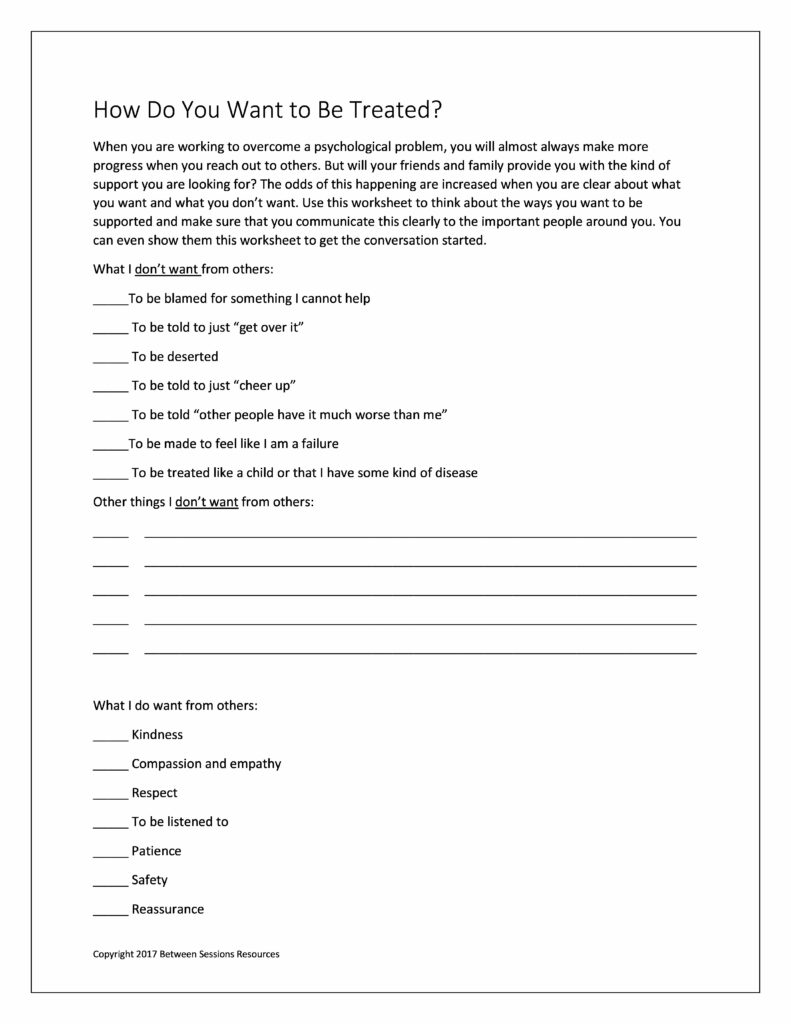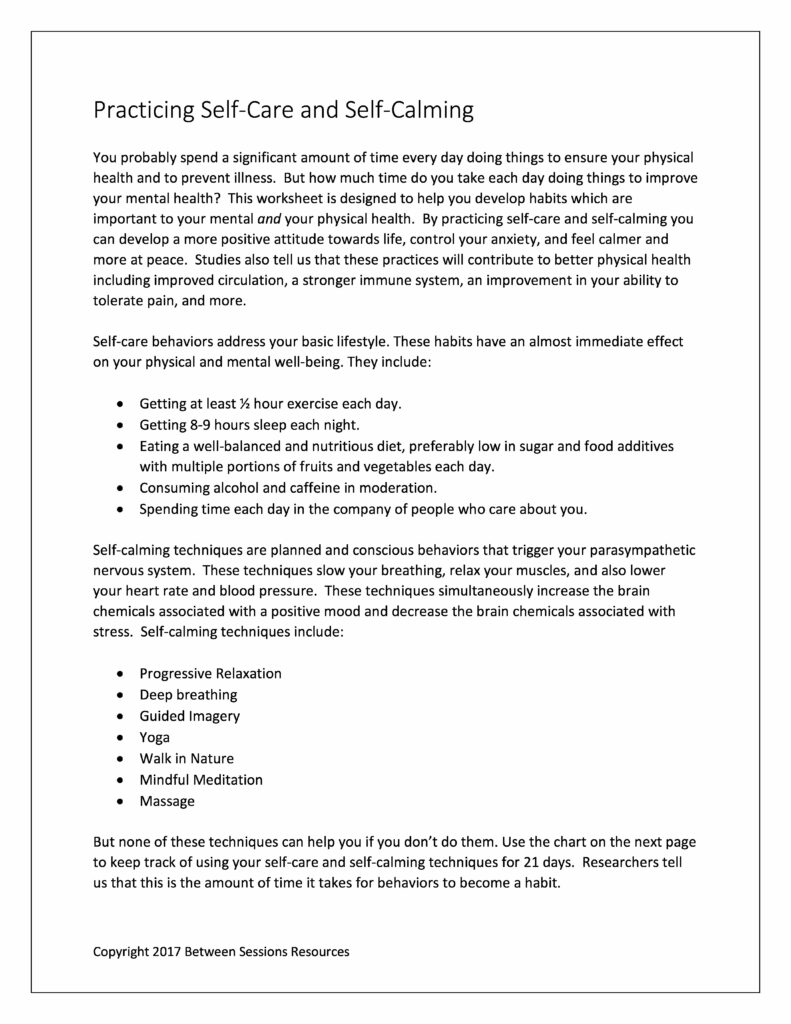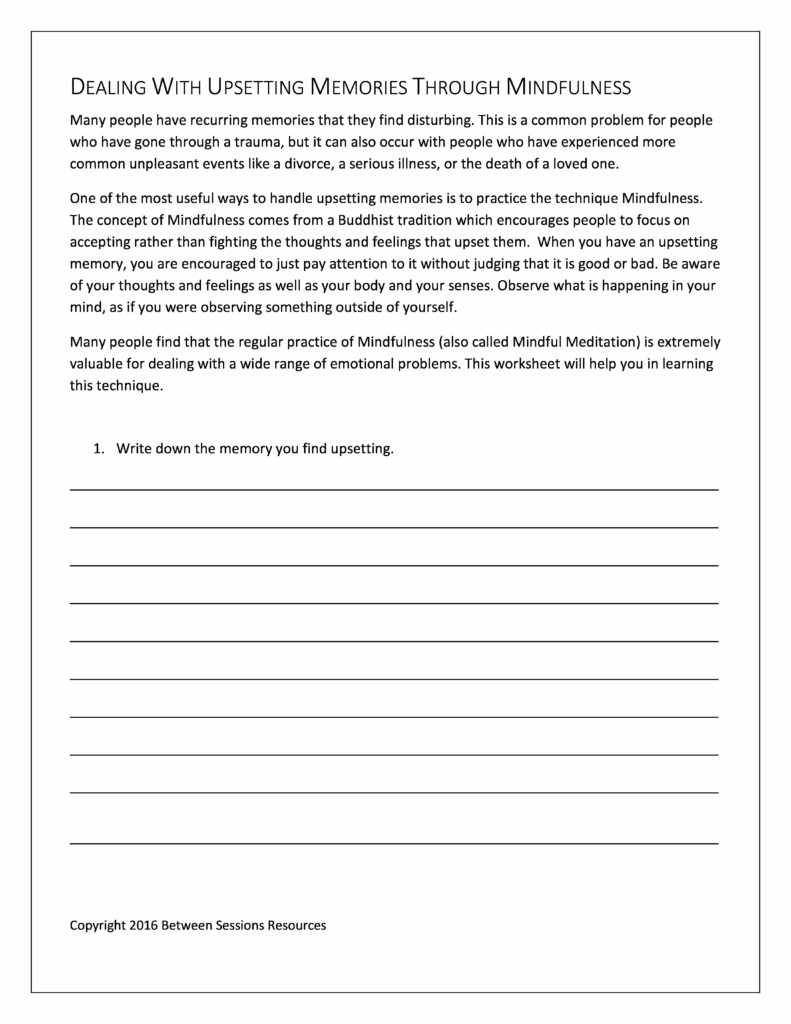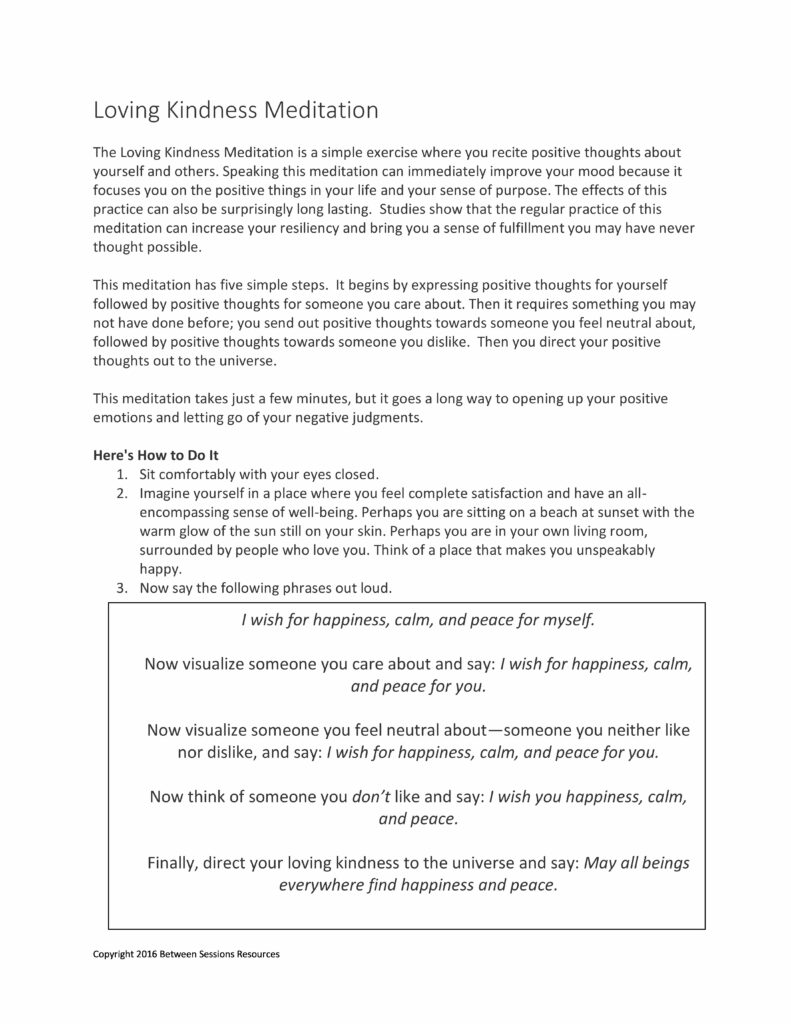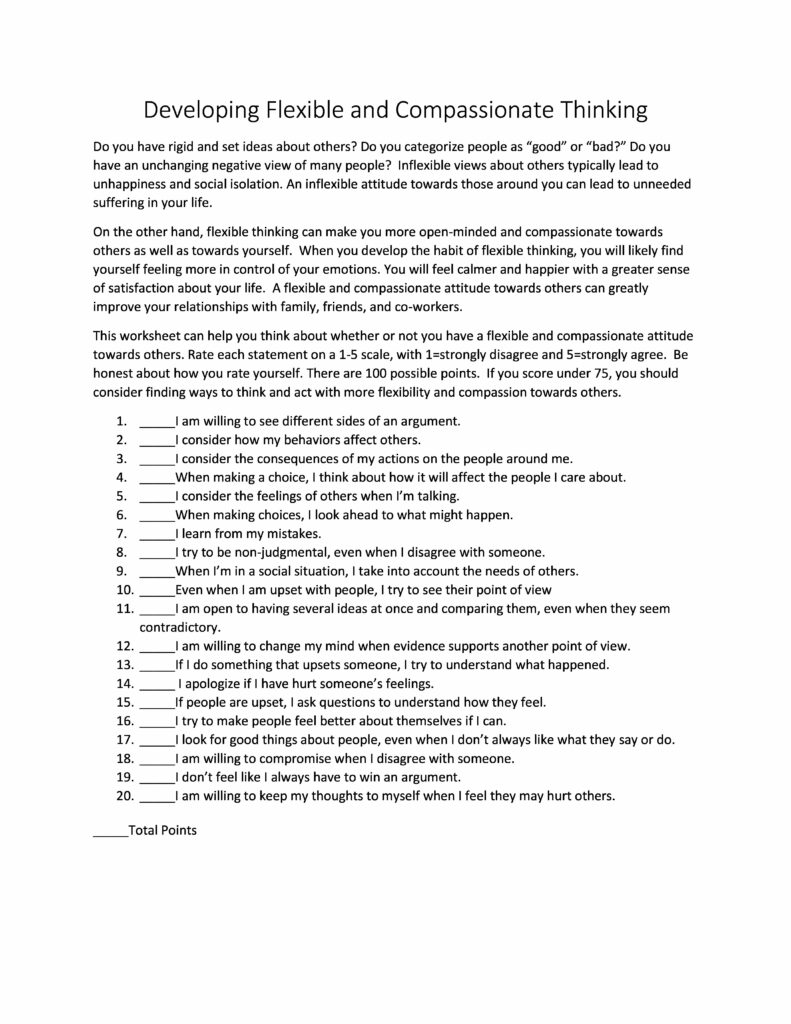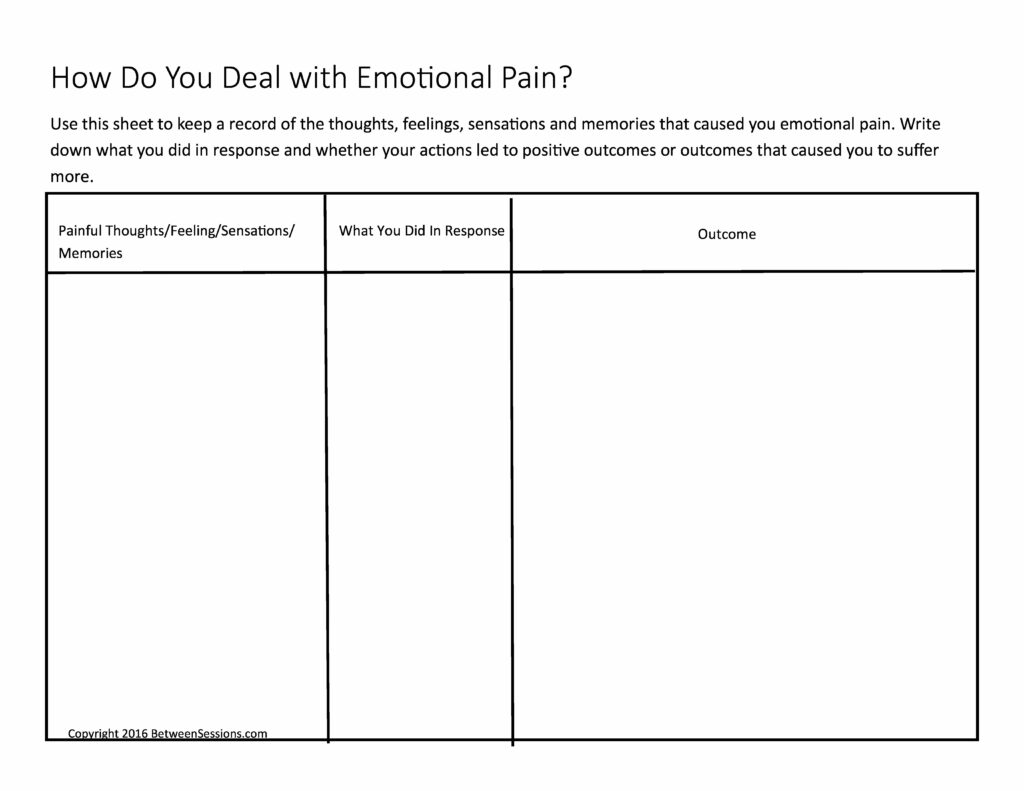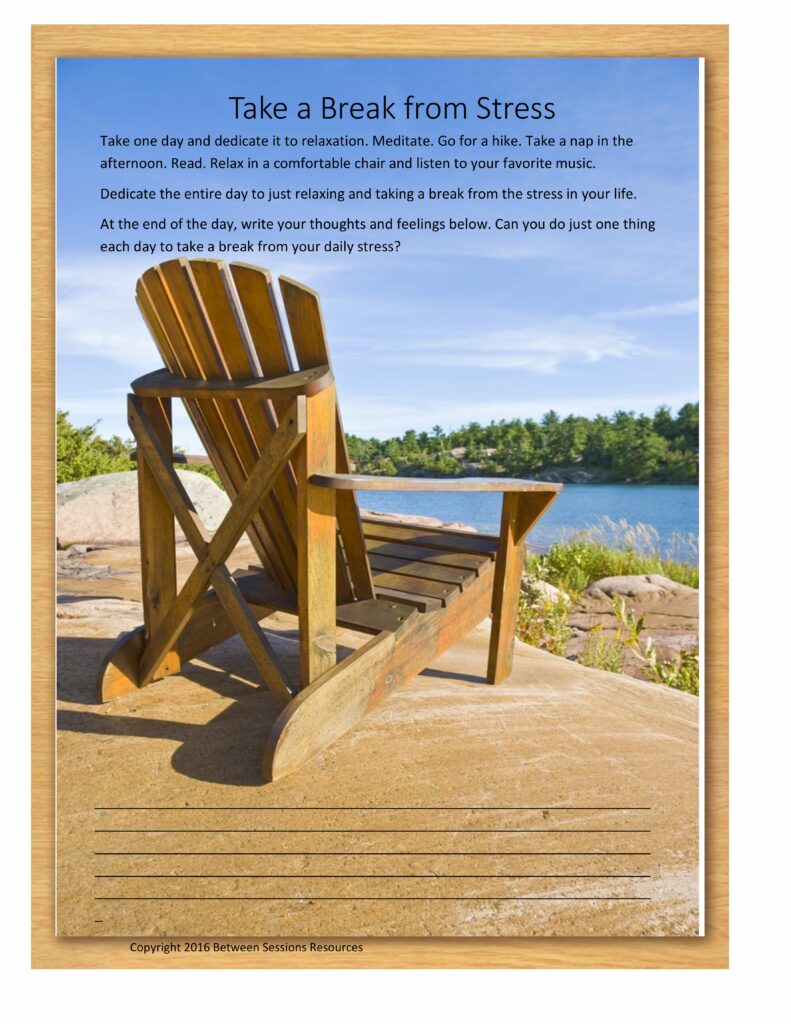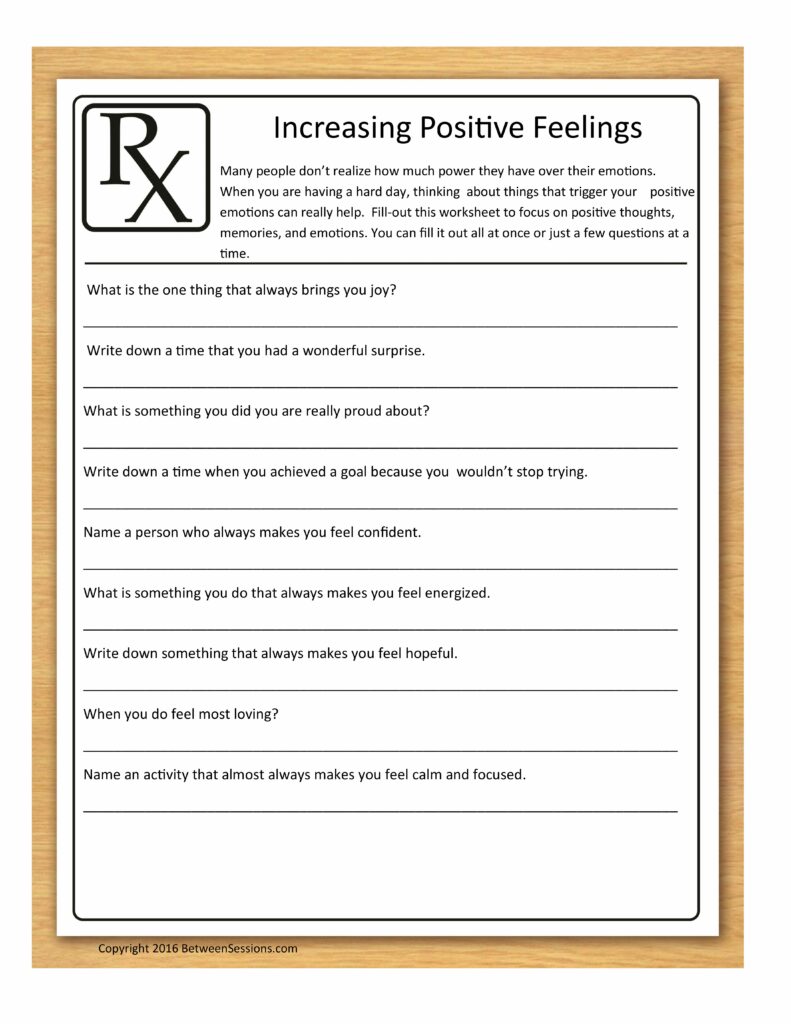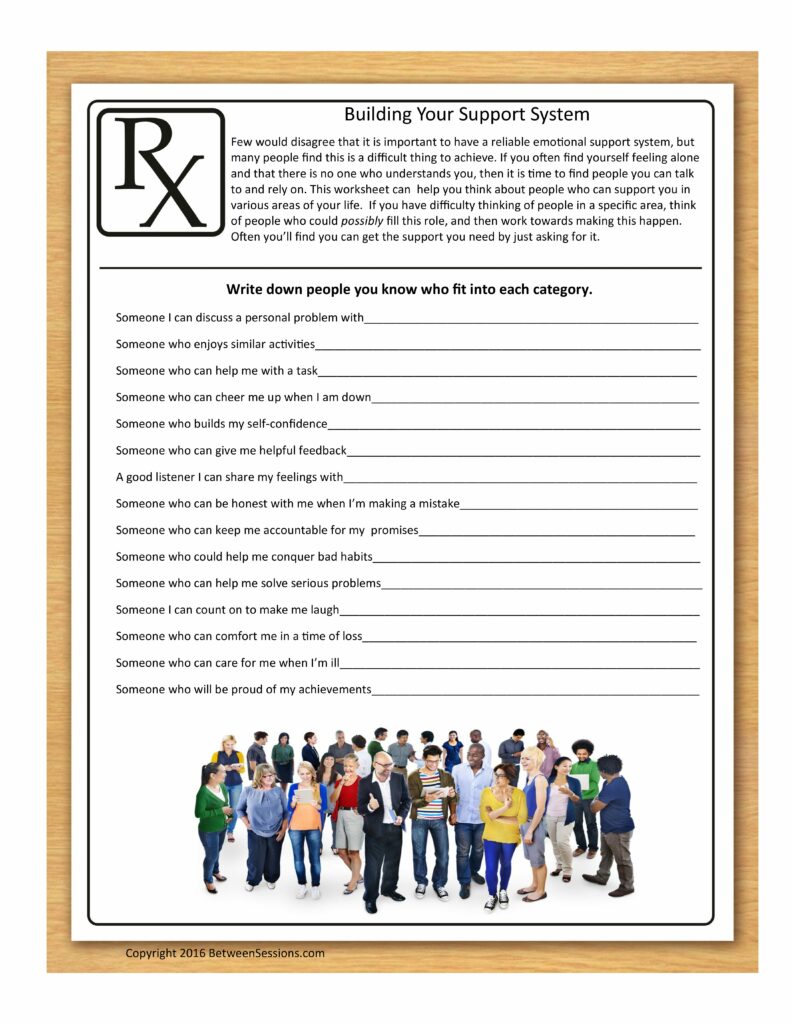This worksheet is designed to help people think about how others can help them with their psychological problems. The worksheet asks them to think about both the things that they want from others as well as the things they don’t want. (depression, social skills, communication, 0417)
This worksheet is designed to encourage people to practice both self-care and self-calming techniques on a daily basis. The worksheet lists types of techniques are effective in each category and includes a form to record the use of these techniques for 21 days (the time it takes to form a habit). (PTSD, depression, anxiety, eating disorders, 0217)
Many people have recurring memories that they find disturbing. This is a common problem for people who have gone through a trauma, but it can also occur with people who have experienced more common unpleasant events like a divorce, a serious illness, or the death of a loved one. One of the most useful ways to handle upsetting memories is to practice the technique Mindfulness. This worksheet will help people learn and practice this technique. (PTSD, DBT, divorce, mindfulness, trauma, 1116)
This worksheet is designed to teach people the technique of Loving Kindness Meditation. Research suggests that this simple meditation can have a long term effect on people’s happiness. (ACT, meditation, happiness, mindfulness, depression, 0616)
This worksheet is designed to help people consider how they think about others. It is designed to help people see that flexible and compassionate thinking can improve their relationships as well as their own self-image. The assessment asks them to rate 20 questions on a 5-point scale. (compassion, flexibility, relationships, DBT, 0516, CBT).
This worksheet can be used to help people record the thoughts, feelings, sensations, and memories that caused them emotional pain as well as to note what behavioral responses are triggered and whether these were positive or negative. PDF (0316, DBT, Emotional Regulation)
Take a vacation from stress and dedicate just one day to living “stress free.” Sometimes this is harder than you think! At the end of the day, think about how you were able to create stress-free time, and how you can apply this to your normal life. Stress is a normal part of life and learning to control and cope with stress is an important part of good mental health.
This worksheet is designed to help people think about what is really important for them to communicate to others. It asks people to design a billboard for the world to see and to identify one specific person they want to read it. PDF (0316, art therapy, communication)
This worksheet is designed to evoke positive feelings and simultaneously demonstrate that you can “change the channel” on your emotions. PDF (0216, depression, CBT, positive psychology)
This worksheet is designed to help people think about the people in their support system and the kinds of support they might be missing. (social support, 0116)

